Signs Your Gut Microbiome is Out of Whack (And How to Fix It)
The signs are sneaky: breakouts, bloating, food cravings, irritability, brain fog. Most people chalk them up to stress or bad luck—but they’re actually your gut waving a red flag. That’s why we’ve expanded our guide —a smart, science-backed breakdown of what those symptoms really mean and how to restore harmony from the inside out. Because healing your gut isn’t about trendy cleanses or guesswork—it’s about listening to your body, understanding the patterns, and giving your microbes what they need to thrive. Let’s decode the chaos and get your gut (and life) back on track.
1. Digestive Disturbances

Digestive issues like bloating, gas, diarrhea, or constipation are often the most direct indicators of an imbalanced gut microbiome. These symptoms suggest that the bacteria responsible for breaking down food and absorbing nutrients are not functioning optimally. When harmful bacteria outnumber beneficial ones, the digestive process can become inefficient, leading to discomfort and malabsorption. Restoring balance involves dietary changes, such as increasing fiber intake and incorporating fermented foods, which can promote the growth of beneficial bacteria. Probiotic supplements can also be a valuable addition, helping to reintroduce and maintain healthy bacterial populations.
2. Unexplained Fatigue

Chronic fatigue that cannot be attributed to lack of sleep or physical exertion may be a sign of gut dysbiosis. The gut microbiome influences energy levels by affecting nutrient absorption and inflammation. An imbalanced microbiome can lead to increased production of inflammatory markers, which are known to cause fatigue. To combat this, focus on a diet rich in anti-inflammatory foods, such as leafy greens, nuts, and fatty fish. Additionally, regular physical activity and stress management techniques like yoga or meditation can help reduce inflammation and support gut health.
3. Skin Issues
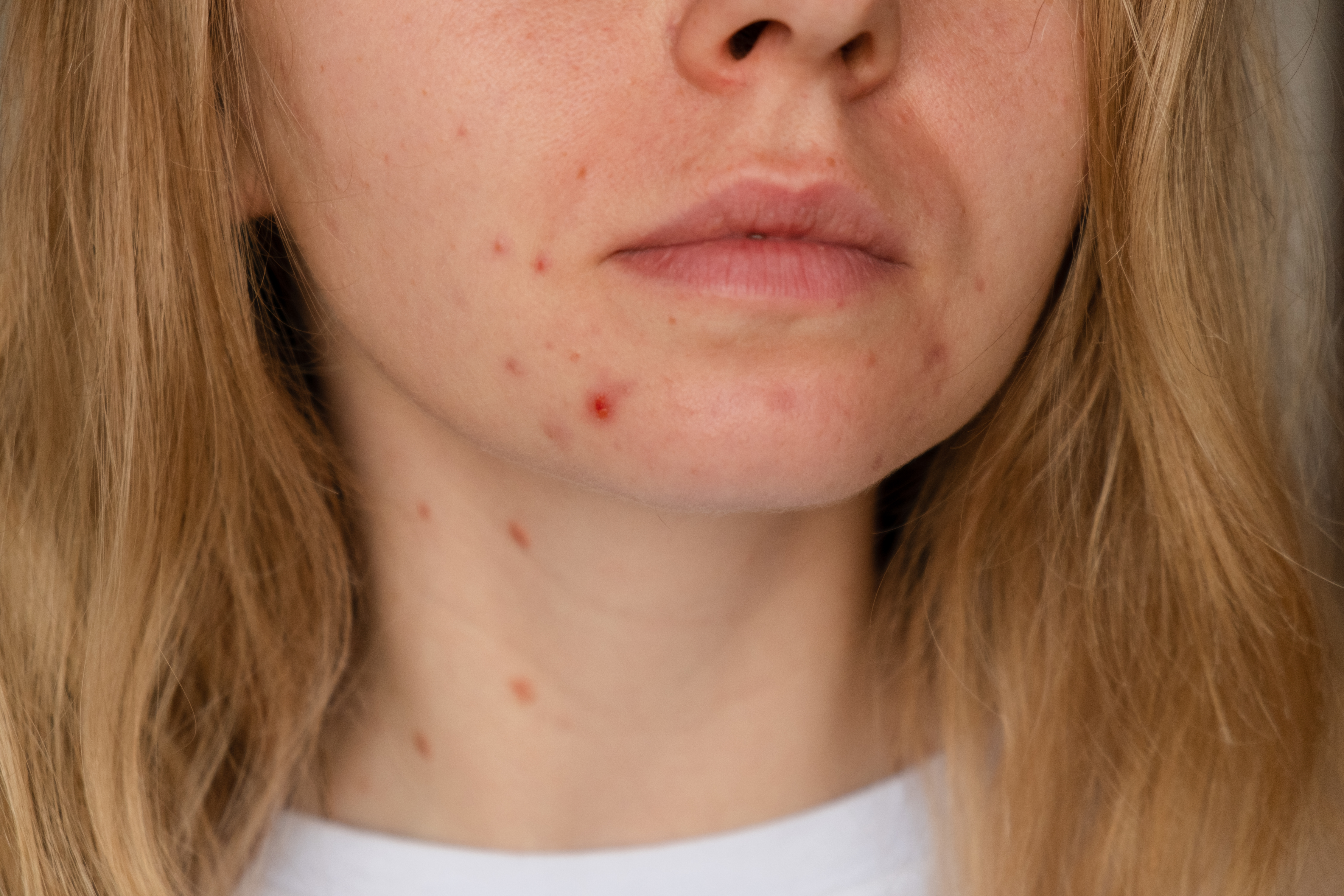
The skin is often a reflection of internal health, and conditions like acne, eczema, or rosacea can signal an unhappy gut. The gut-skin axis is a bidirectional relationship where gut health directly impacts skin condition. Imbalances in the gut microbiome can lead to systemic inflammation, which exacerbates skin issues. To improve skin health, consider eliminating processed foods and sugars, which can feed harmful bacteria. Instead, focus on a diet high in antioxidants and omega-3 fatty acids, which support skin health and reduce inflammation.
4. Unexpected Weight Changes
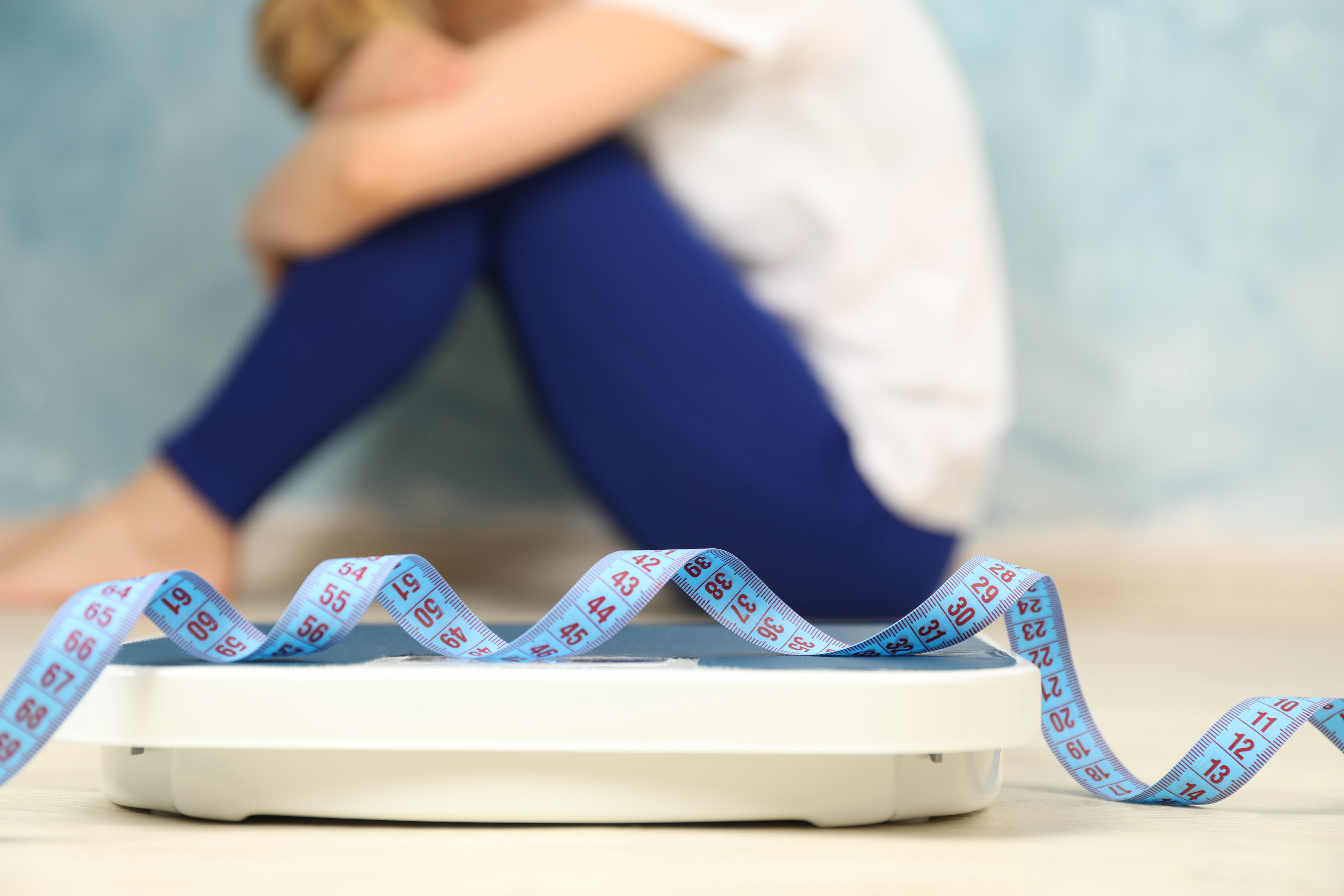
Unintentional weight gain or loss can indicate a disrupted gut microbiome. Certain bacteria in the gut are involved in regulating metabolism and energy balance. An overabundance of specific bacterial strains can lead to increased fat storage, while others may trigger weight loss by affecting appetite-regulating hormones. To address weight changes, aim for a balanced diet that includes a variety of plant-based foods to encourage a diverse microbiome. Prebiotics, found in foods like garlic and onions, can also help nourish beneficial bacteria.
5. Mood Swings and Mental Health

The gut-brain axis is a communication network linking the gut and brain, influencing mood and mental health. An imbalanced microbiome can affect neurotransmitter production, leading to mood swings, anxiety, or depression. Supporting gut health through a diet rich in probiotics and prebiotics can help stabilize mood. Foods like yogurt, kefir, and bananas are excellent choices. Additionally, ensuring adequate intake of omega-3 fatty acids and B vitamins can further support mental well-being by enhancing neurotransmitter function.
6. Autoimmune Conditions
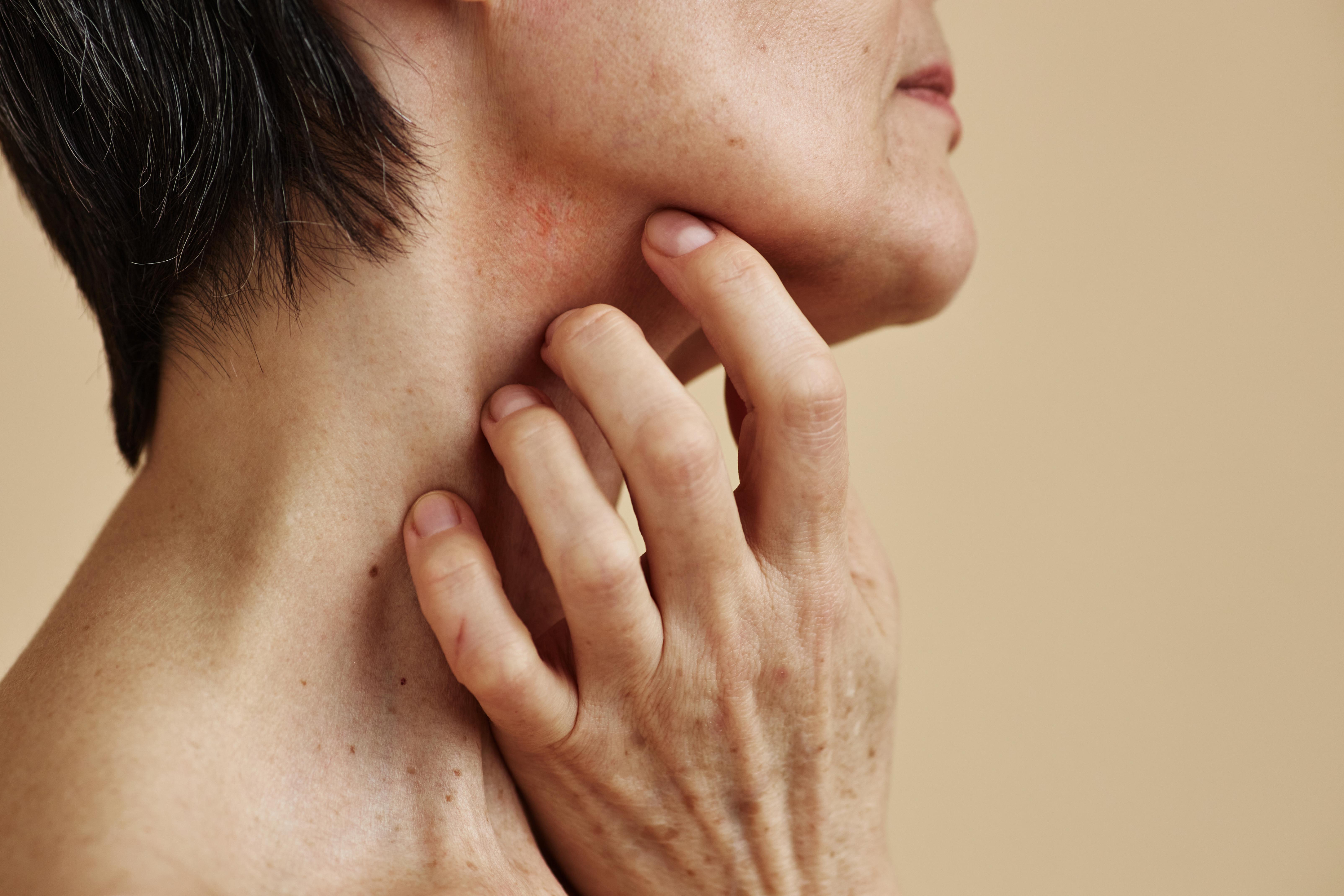
Emerging research suggests a link between gut health and autoimmune diseases, where the immune system mistakenly attacks healthy cells. An imbalanced microbiome may contribute to immune dysregulation and increased inflammation, triggering autoimmune responses. To support immune health, focus on a diet rich in anti-inflammatory foods and consider incorporating fermented foods like kimchi or sauerkraut. Regular exercise and maintaining a healthy sleep routine can also help regulate immune function and reduce the risk of autoimmune flare-ups.
7. Food Intolerances
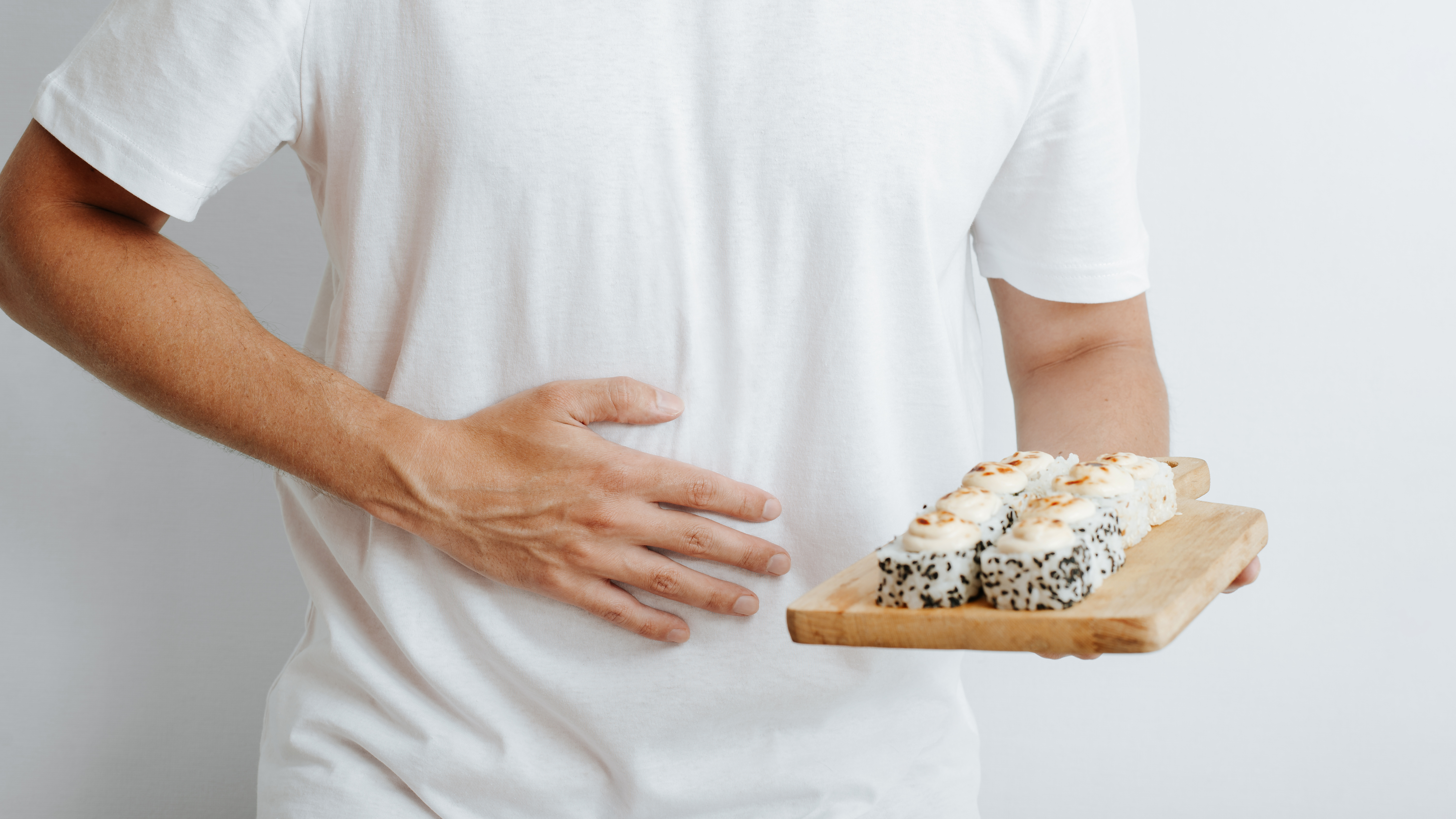
Developing new food intolerances or sensitivities can be a sign of an imbalanced gut microbiome. When the gut barrier is compromised, it can lead to increased intestinal permeability, commonly known as "leaky gut." This allows undigested food particles to enter the bloodstream, triggering immune reactions. To heal the gut barrier, focus on a diet rich in whole, unprocessed foods, and consider supplements like L-glutamine, which supports intestinal health. Reducing stress and avoiding known trigger foods can also aid in restoring gut integrity.
8. Frequent Infections

A compromised gut microbiome can weaken the immune system, leading to increased susceptibility to infections. Beneficial bacteria play a crucial role in defending against pathogens and maintaining immune homeostasis. To bolster your immune defenses, ensure a diet rich in vitamins C and D, which support immune function. Probiotics can also help replenish beneficial bacteria, enhancing the body's ability to fight off infections. Regular exercise and adequate hydration further support immune health.
9. Persistent Bad Breath

Bad breath, or halitosis, can sometimes be linked to gut health rather than oral hygiene. An overgrowth of harmful bacteria in the gut can produce volatile sulfur compounds, contributing to unpleasant odors. Addressing this issue involves promoting the growth of beneficial bacteria through dietary changes. Increasing fiber intake and consuming probiotics can help balance the gut microbiome. Additionally, staying hydrated and maintaining good oral hygiene are essential in managing halitosis.
10. Sugar Cravings

Intense sugar cravings can be a sign of an imbalanced gut microbiome, as certain bacteria thrive on sugar and can influence cravings to sustain their growth. These cravings can lead to a cycle of poor dietary choices that further disrupt gut health. To break this cycle, focus on a balanced diet rich in complex carbohydrates, healthy fats, and proteins, which provide sustained energy and reduce sugar cravings. Incorporating fermented foods and probiotics can also help restore balance by increasing the population of beneficial bacteria.
11. Difficulty Concentrating

Cognitive function is closely linked to gut health, with an imbalanced microbiome potentially contributing to brain fog and difficulty concentrating. The gut produces neurotransmitters like serotonin, which influence cognitive processes. To enhance focus and mental clarity, prioritize a diet rich in omega-3 fatty acids and antioxidants, which support brain health. Regular physical activity and adequate sleep are also critical in maintaining cognitive function and overall well-being.
12. Joint Pain

Joint pain and inflammation can be exacerbated by an imbalanced gut microbiome. Certain bacteria can promote inflammation, leading to increased joint discomfort. To alleviate joint pain, focus on a diet high in anti-inflammatory foods, such as turmeric, ginger, and leafy greens. Omega-3 fatty acids, found in fish oil, can also help reduce inflammation. Additionally, maintaining a healthy weight and engaging in regular low-impact exercise can support joint health.
13. Trouble Sleeping or Poor Sleep Quality

Struggling to fall asleep or waking up frequently? Your gut could be the culprit. The gut microbiome helps regulate melatonin and serotonin—hormones that govern your sleep-wake cycle. An imbalance can disrupt this rhythm, leading to restlessness, insomnia, or non-refreshing sleep. Studies have found that poor gut diversity is linked to lighter, fragmented sleep. To support better rest, include fermented foods like kefir or miso in your evening meals, and avoid heavy sugar or alcohol before bed. A calming nighttime routine, prebiotic-rich snacks like kiwi or oats, and consistent sleep hygiene can also restore microbiome harmony and improve sleep.
14. New-Onset Allergies or Seasonal Reactions
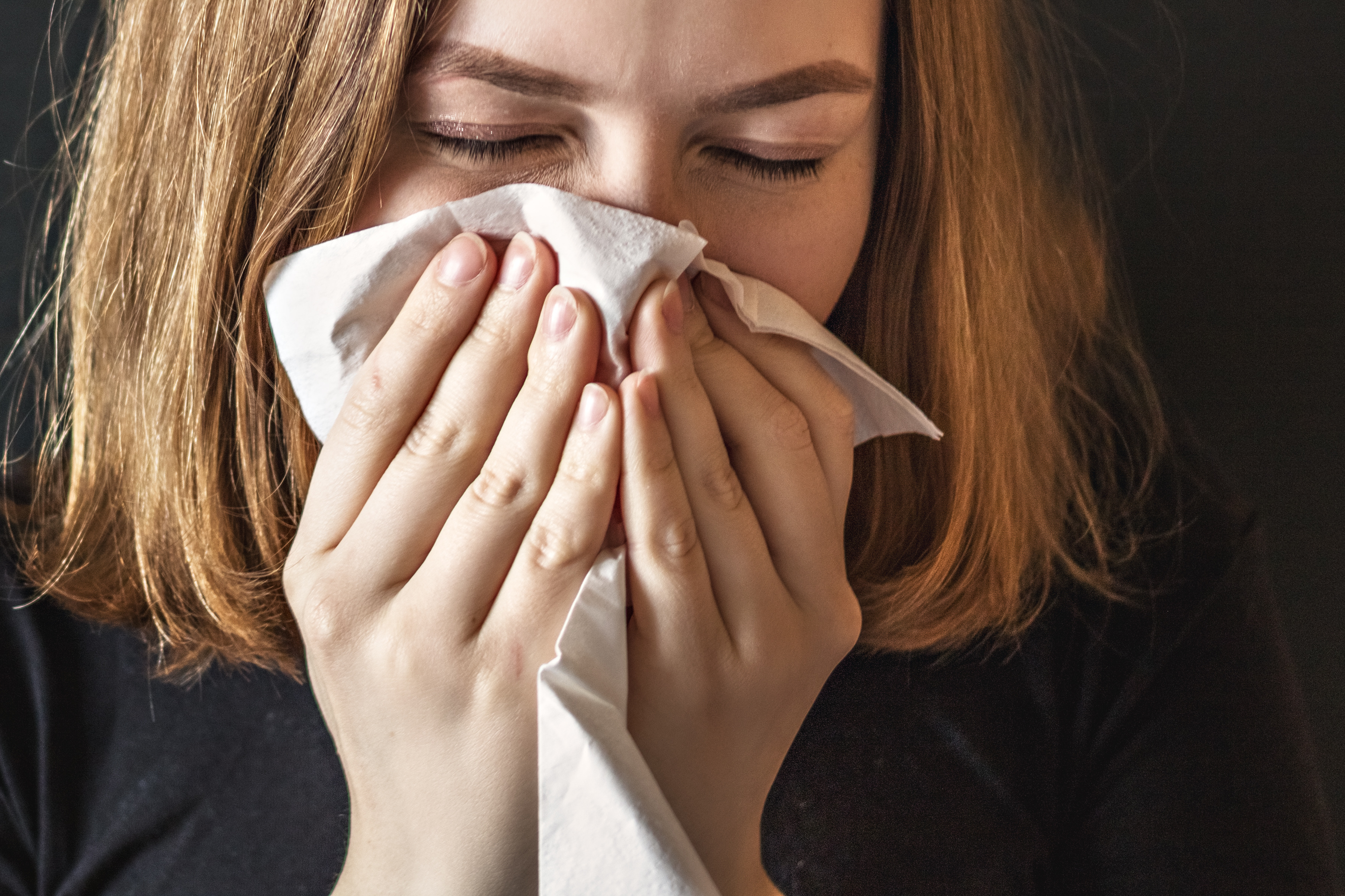
If you've suddenly become more reactive to pollen, pets, or even foods, your gut may be playing a role. A compromised gut lining and reduced bacterial diversity can trigger immune hypersensitivity, leading to more pronounced allergy symptoms. The microbiome helps train the immune system to tolerate harmless substances, so when it’s out of balance, that tolerance can weaken. To calm allergic reactions, reduce inflammatory foods, boost probiotic intake, and eat fiber-rich prebiotics like asparagus and leeks. Supporting your gut may not eliminate allergies entirely, but it can reduce their intensity and frequency over time.
15. Hormonal Imbalances or Irregular Cycles
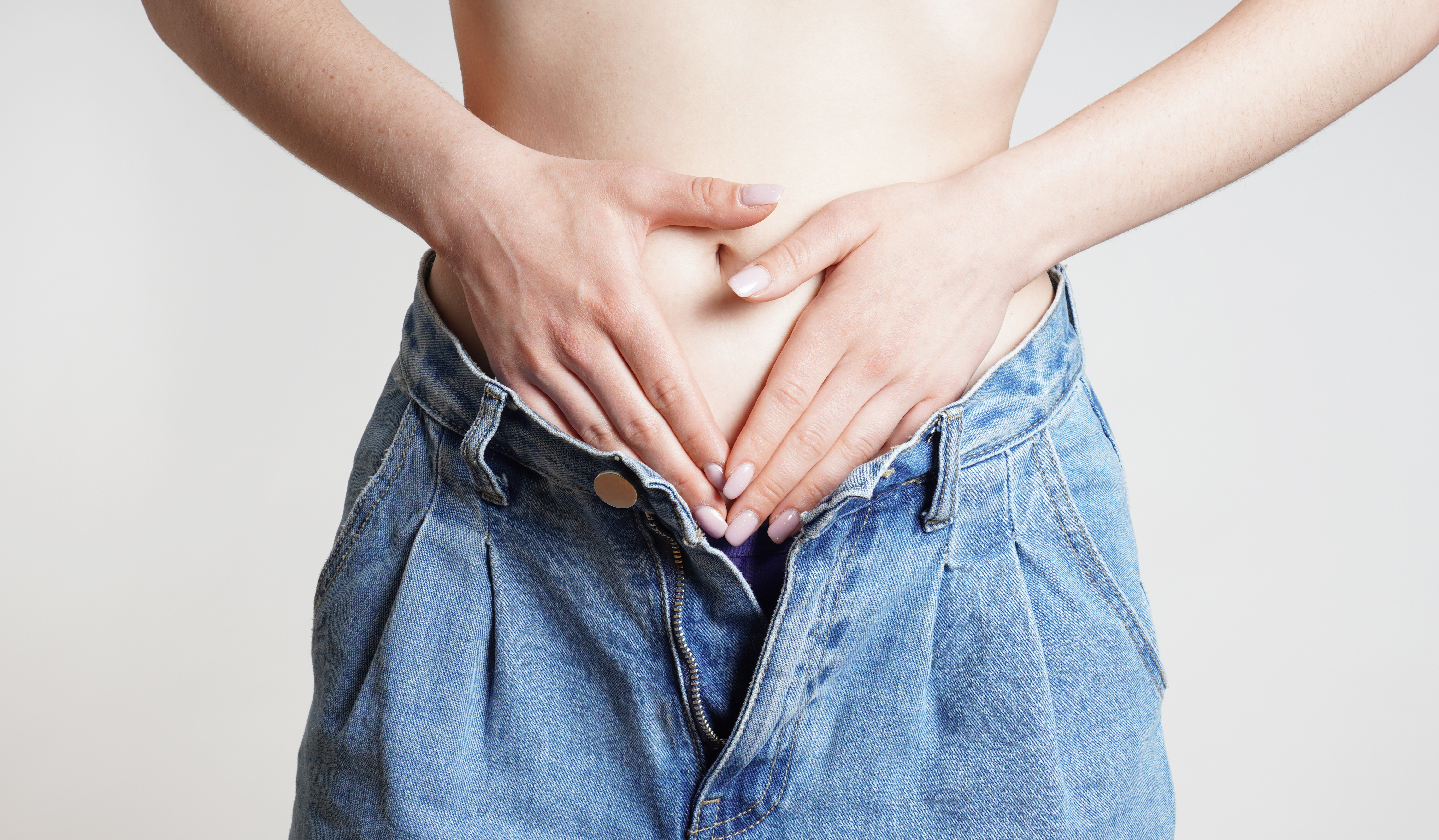
Your gut plays a surprisingly central role in hormone regulation—especially estrogen. The estrobolome, a subset of gut bacteria, helps metabolize and eliminate excess hormones. When these microbes are disrupted, it can lead to estrogen dominance, irregular periods, PMS symptoms, or skin breakouts. Hormonal fluctuations aren’t always caused by reproductive organs alone—they often begin in the gut. To support balance, increase fiber (to bind and excrete excess estrogen), avoid processed foods, and eat cruciferous vegetables like broccoli and cauliflower. Adding fermented foods and reducing endocrine disruptors (like plastics) can further stabilize hormone levels through microbiome support.
16. Intolerance to Stress or Overreactive Responses

If small stressors now feel overwhelming, your gut might be amplifying the response. The microbiome influences cortisol levels and nervous system sensitivity. Dysbiosis can trigger an exaggerated stress response, leading to anxiety, irritability, or emotional exhaustion. It’s a feedback loop: stress harms gut health, and poor gut health worsens stress resilience. Breaking the cycle starts with nourishment—prioritize gut-calming foods like oats, bone broth, and fermented veggies. Probiotic supplements and mindfulness practices (like breathwork or meditation) can also reduce inflammation and help recalibrate the gut-brain axis for better emotional balance.
17. Cracked or Coated Tongue
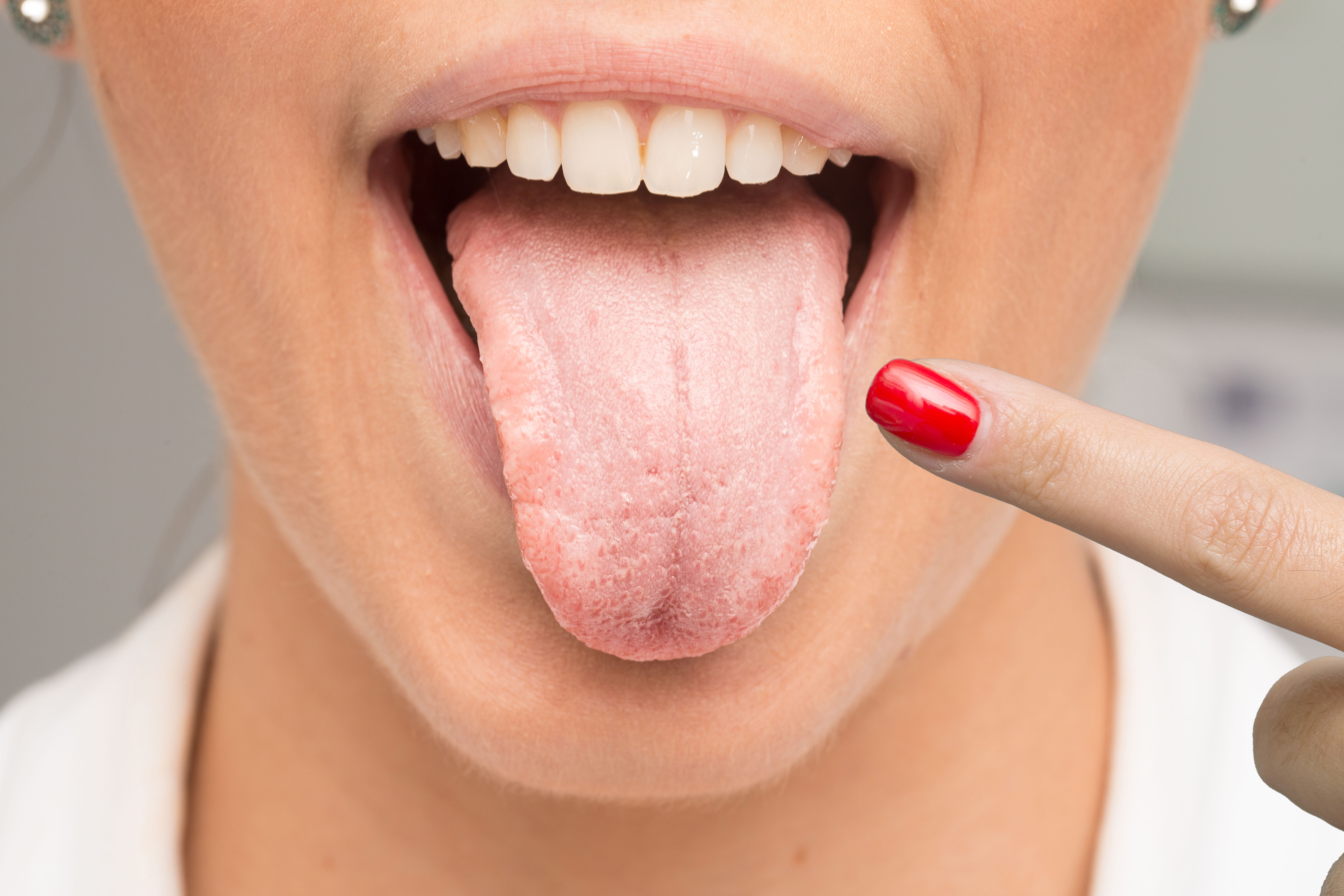
Your tongue can reveal more than dehydration—it’s also a window into your gut. A white coating, inflammation, or cracked surface may indicate bacterial or yeast imbalances in the digestive tract, particularly candida overgrowth. While these signs are often overlooked, they can be early clues of microbiome distress. Restoring balance involves limiting sugar (which feeds candida), increasing probiotic foods, and incorporating antifungal natural remedies like garlic or oregano oil. Also, try a daily tongue scraping routine to remove surface buildup while you heal the gut from within.
18. Cold Hands and Feet

If your extremities are always freezing—regardless of the weather—it could be more than poor circulation. An imbalanced gut can impair nutrient absorption, especially iron, magnesium, and B vitamins, all of which support healthy blood flow. When these levels drop, your body struggles to regulate temperature, leaving your hands and feet icy. Additionally, gut-induced inflammation can constrict blood vessels, worsening the issue. To warm up from within, focus on gut-healing foods rich in absorbable nutrients: bone broth, leafy greens, lentils, and fermented vegetables. And don’t underestimate the power of a diverse, fiber-rich diet to get your microbiome (and circulation) back on track.
19. Frequent Urinary Tract Infections (UTIs)

If you’re constantly battling UTIs, your gut might be the hidden culprit. The gut and urinary microbiomes are closely linked, and gut dysbiosis can lead to the overgrowth of pathogenic bacteria like E. coli—often the main cause of recurring infections. A weakened microbiome can also compromise the vaginal flora, reducing natural defenses. To lower your UTI risk, prioritize fermented foods (especially plain yogurt and kimchi), hydrate consistently, and reduce sugar intake, which fuels harmful microbes. Probiotics containing Lactobacillus strains are particularly helpful in restoring balance both in the gut and urinary tract.
20. Frequent Nausea Without Cause

Chronic, low-grade nausea that seems to have no clear source might be a sign your gut isn’t processing food properly. Imbalances in gut bacteria can slow gastric emptying or disrupt the communication between your gut and brain, leading to a vague, persistent queasiness. Small intestinal bacterial overgrowth (SIBO) is one common culprit. To ease symptoms, reduce fermentable carbs (like garlic, onions, and legumes), eat smaller meals, and consider a low-FODMAP diet temporarily under supervision. Long-term, slowly reintroducing probiotic-rich foods and supporting digestion with bitters or ginger can help your gut regain balance and calm the queasiness.
21. Sensitivity to Smells or Chemicals

If perfumes, cleaning products, or even everyday foods suddenly overwhelm your senses, it might not just be allergies—it could be your gut. A compromised microbiome can reduce your body’s ability to detoxify efficiently, making it hypersensitive to external stimuli. This chemical sensitivity is often linked to increased gut permeability ("leaky gut") and poor liver-gut axis communication. To rebuild resilience, support your gut and detox pathways with cruciferous vegetables, fiber, and plenty of hydration. Adding glutathione-rich foods like avocados and asparagus can also help your system manage chemical exposures more smoothly.
22. Nail Changes or Brittleness
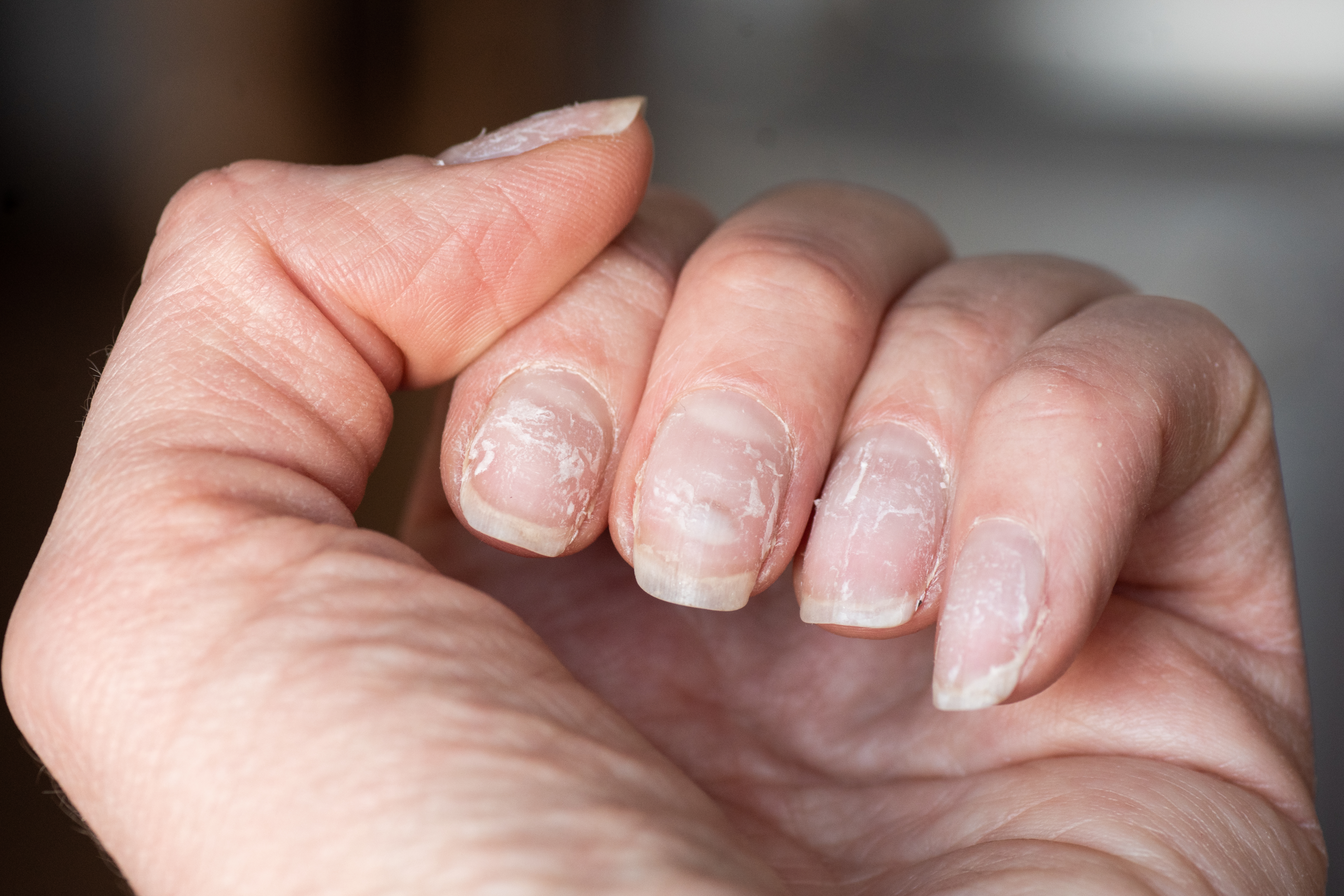
Peeling, ridged, or brittle nails can signal nutrient malabsorption—and the gut is ground zero for that process. When your microbiome is compromised, you may struggle to absorb key vitamins like biotin, iron, zinc, and protein—all critical for nail strength. Instead of reaching for topical solutions, start with your gut. A diet rich in fermented foods, healthy fats, and collagen-boosting nutrients like vitamin C can support gut lining repair and improve nutrient uptake. Over time, as your microbiome heals, your nails will too—stronger, smoother, and more resilient.
23. Lightheadedness After Meals

Feeling dizzy or spaced out after eating? It could be your gut microbiome interfering with blood sugar regulation. Dysbiosis can affect insulin sensitivity and slow carbohydrate breakdown, leading to post-meal blood sugar spikes or crashes. This rollercoaster can leave you lightheaded, sluggish, or anxious within minutes of eating. The fix? Balance your plate—pair fiber-rich veggies with protein and healthy fats to stabilize glucose response. Cut down on refined carbs and added sugars, and consider fermented foods to help rebalance gut flora. If symptoms persist, a glucose monitor or microbiome test could offer deeper insight.
24. Strong Body Odor (Despite Good Hygiene)

When your gut is out of balance, waste products aren’t metabolized efficiently—leading to more toxins being excreted through sweat. This can result in unexpectedly strong body odor, especially if your diet is high in processed foods or sugar, which feed the “bad” microbes. Instead of masking it with deodorants, start from within. Focus on high-fiber, plant-forward meals that support detoxification, drink plenty of water, and consider adding chlorophyll-rich foods like parsley or spirulina. A healthy microbiome doesn’t just help you feel better—it helps you smell fresher too.
25. Heightened Pain Sensitivity

If everyday discomforts—like headaches, period cramps, or sore muscles—feel unusually intense, your gut might be influencing your pain threshold. Dysbiosis can disrupt the gut-brain axis and increase systemic inflammation, amplifying how your body perceives pain. Some gut bacteria even play a role in regulating neurotransmitters tied to pain modulation. Healing starts with anti-inflammatory support: turmeric, flaxseed, and wild-caught fish can help. Prioritize sleep, reduce ultra-processed foods, and consider introducing probiotics with Lactobacillus and Bifidobacterium strains. Restoring microbial balance may literally help take the edge off physical discomfort.
26. Eye Dryness or Irritation
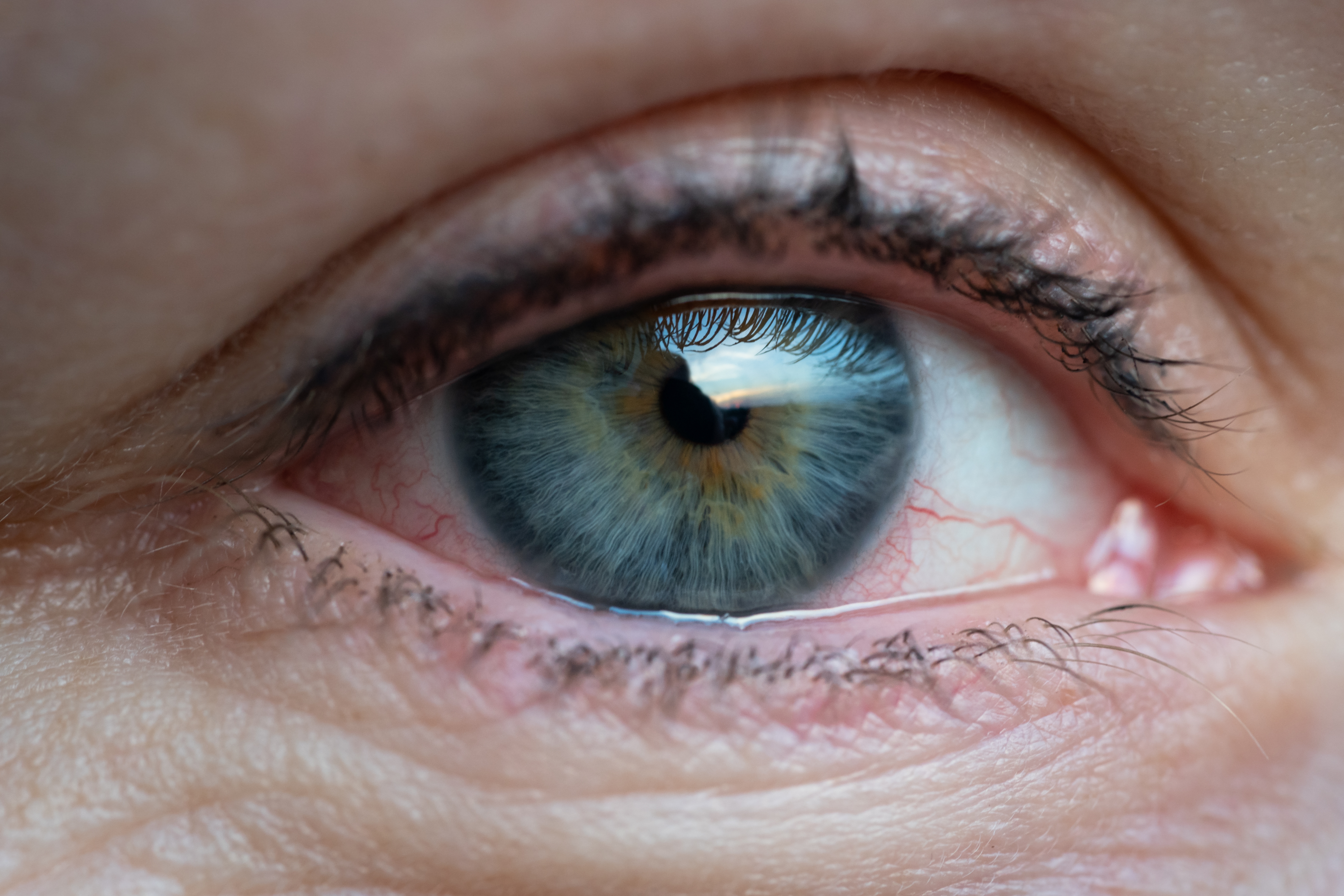
The gut and eyes may seem unrelated, but research shows a strong link between gut health and the moisture barrier of your eyes. An imbalanced microbiome can trigger inflammation that affects tear production and eye surface health—leading to dryness, redness, or light sensitivity. This connection is especially strong in people with autoimmune or skin conditions. To support both gut and eye health, focus on omega-3s, antioxidant-rich produce (like carrots and leafy greens), and hydration. Adding gut-friendly fermented foods and minimizing processed foods can calm inflammation system-wide, including in your eyes.
27. Low Exercise Tolerance

If your workouts suddenly feel harder, or you tire quickly doing things that used to feel easy, your gut could be interfering with energy production. An imbalanced microbiome can impair nutrient absorption (like B vitamins and magnesium), disrupt mitochondrial function, and even increase muscle soreness by promoting inflammation. Instead of pushing harder, focus on replenishing from the inside. Eat a diverse, colorful diet that supports microbial diversity, and consider adding fermented foods post-workout to aid recovery. As your gut heals, so does your stamina—restoring the energy and endurance your body is designed to have.
28. Unexplained Hair Loss or Thinning

If you're noticing unexplained hair loss or thinning, your gut microbiome could be the culprit. A healthy gut is essential for the absorption of key nutrients like iron, zinc, and biotin, all of which are critical for hair growth. Gut dysbiosis can impair this absorption, leading to nutrient deficiencies that manifest as hair loss. Additionally, gut-induced inflammation can affect hair follicles, disrupting the hair growth cycle. Addressing this issue involves supporting your gut with a diverse, whole-food diet, which in turn helps ensure you're absorbing the nutrients your body needs for a healthy head of hair.
29. Unexplained Anemia or Nutrient Deficiencies
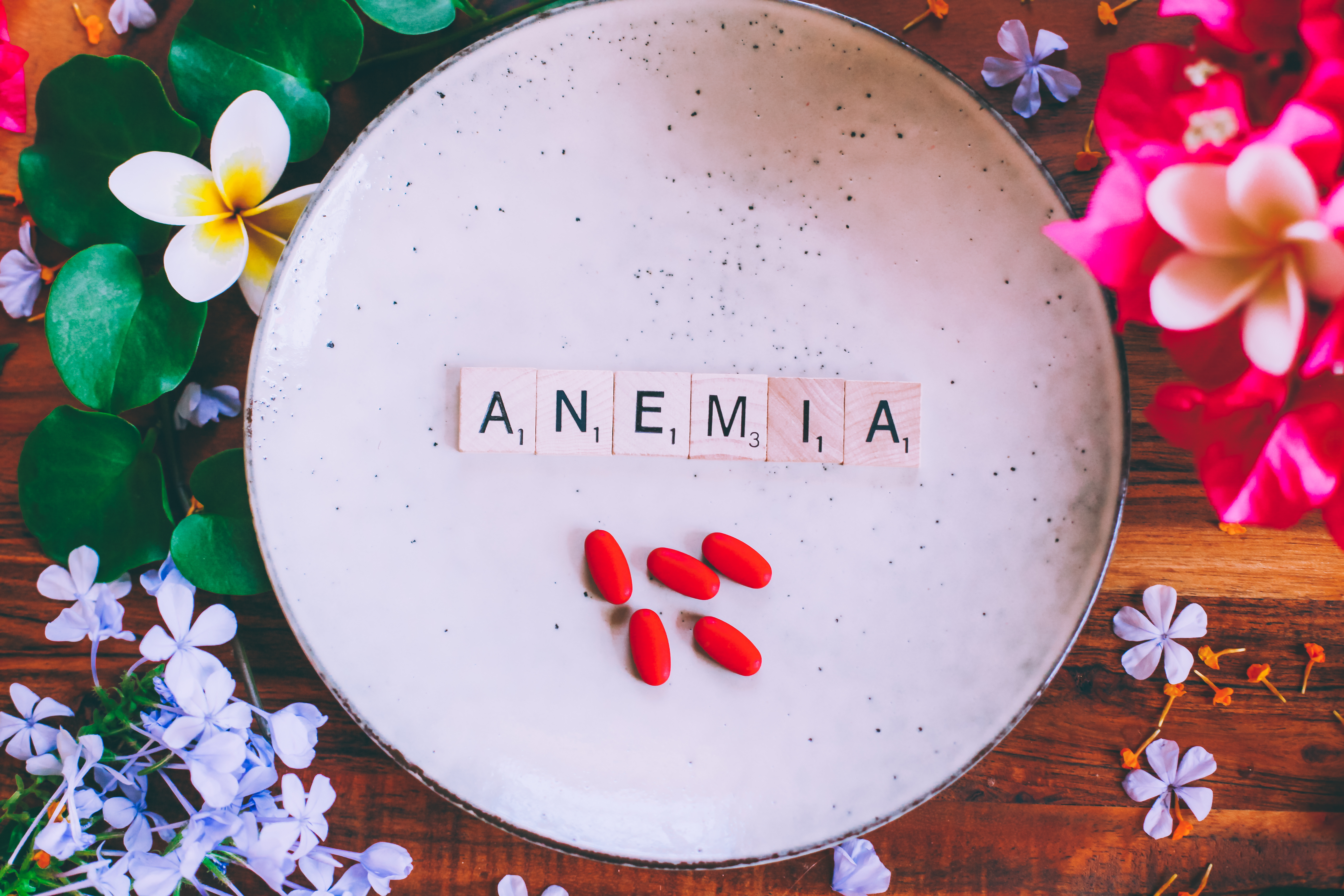
An imbalanced gut microbiome can be a root cause of anemia and other nutrient deficiencies, even if your diet is nutrient-rich. A healthy gut is where most of your vitamins and minerals are absorbed. Gut dysbiosis, and especially small intestinal bacterial overgrowth (SIBO), can impair this absorption, leading to deficiencies in B12, iron, and other vital nutrients. These deficiencies can manifest as fatigue, brain fog, and a range of other symptoms. If your blood tests show unexplained deficiencies despite a good diet, it's worth considering the health of your microbiome.
30. Stubborn Weight Loss Resistance

If you’re struggling to lose weight despite a healthy diet and regular exercise, your gut microbiome might be working against you. Certain strains of bacteria in an imbalanced gut can be highly efficient at extracting calories from food, leading to increased fat storage. Gut dysbiosis can also lead to inflammation and insulin resistance, which are major obstacles to weight loss. To break through this plateau, focus on a diet rich in prebiotic fiber to nourish a diverse gut flora, which in turn can help regulate metabolism and make weight loss efforts more effective.
31. Difficulty Swallowing (Dysphagia)

An imbalanced gut microbiome can sometimes lead to a surprising and uncomfortable symptom: difficulty swallowing. While often attributed to acid reflux or anxiety, gut dysbiosis can disrupt the gut-brain axis, impacting the nervous system that controls the muscles of the esophagus and throat. This can cause a sensation of a lump in the throat or make swallowing feel strained. Healing starts with nourishing the gut-brain connection. Probiotics, anti-inflammatory foods, and stress-reduction techniques can help calm the nervous system and restore smooth, comfortable swallowing.
32. Unexplained Low Blood Pressure

While gut dysbiosis is often linked to hypertension through inflammation, it can also be a surprising cause of unexplained low blood pressure. A compromised gut microbiome can affect the body's ability to absorb and utilize essential minerals like sodium and magnesium, which are crucial for maintaining healthy blood pressure. When these minerals are in short supply, blood pressure can drop too low, leading to symptoms like dizziness, lightheadedness, and fatigue. Supporting your gut health can help improve nutrient absorption and restore a healthy balance, bringing your blood pressure back into a stable range.
33. Unexplained Headaches or Migraines

If you experience unexplained headaches or migraines, your gut microbiome could be the culprit. The gut-brain axis is a communication network that links your gut to your brain, and an imbalanced microbiome can affect neurotransmitter production and increase systemic inflammation. This can trigger headaches and migraines, particularly if you have a history of them. Healing starts with nourishing the gut-brain connection. Probiotics, anti-inflammatory foods, and stress-reduction techniques can help calm the nervous system and restore balance, which can lead to a significant reduction in headaches.
34. Unexplained Rashes or Hives

Beyond acne and eczema, an imbalanced gut microbiome can manifest as unexplained rashes or hives. A compromised gut lining can lead to increased intestinal permeability, allowing undigested food particles to enter the bloodstream and trigger an immune response. This can result in a range of skin conditions, including rashes, hives, and redness. To heal the gut barrier, focus on a diet rich in whole, unprocessed foods and consider supplements like L-glutamine, which supports intestinal health. Reducing stress and avoiding known trigger foods can also aid in restoring gut integrity.
35. Unexplained Loss of Appetite

The gut microbiome plays a role in regulating hormones like ghrelin (the hunger hormone) and leptin (the satiety hormone). When the microbiome is out of balance, the production of these hormones can be disrupted, leading to a decreased interest in food. This can result in unexplained weight loss and a range of other symptoms. Before you skip a meal, try a glass of water. It might be the only thing your body is truly asking for.
36. Dizziness or Vertigo

If you're experiencing dizziness or vertigo, your gut microbiome could be the surprising culprit. An imbalanced microbiome can affect the gut-brain axis, impacting the nervous system that controls the muscles of the esophagus and throat. This can cause a sensation of a lump in the throat or make swallowing feel strained. Healing starts with nourishing the gut-brain connection. Probiotics, anti-inflammatory foods, and stress-reduction techniques can help calm the nervous system and restore smooth, comfortable swallowing.
37. Unexplained Low Blood Sugar
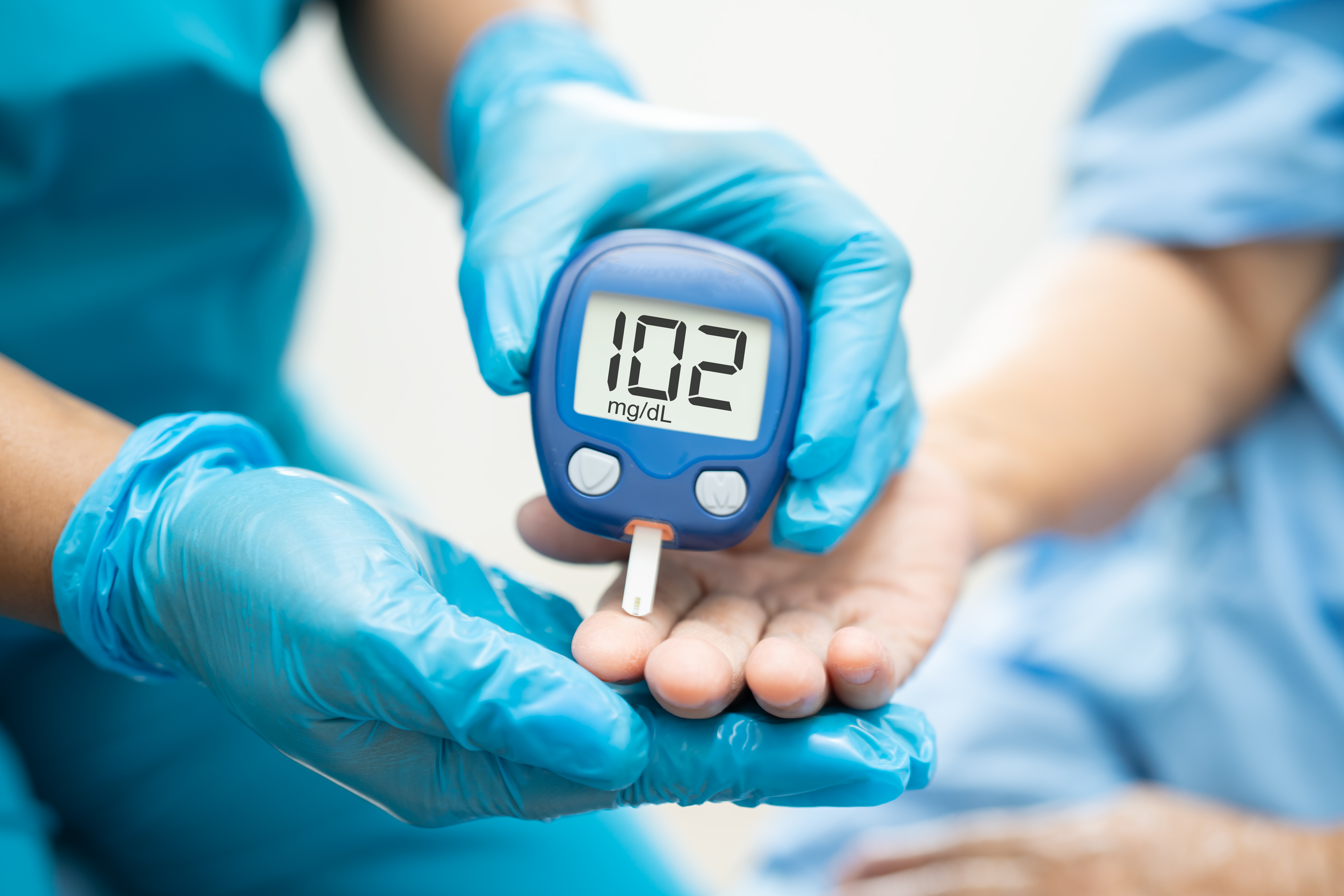
While gut dysbiosis is often linked to hypertension through inflammation, it can also be a surprising cause of unexplained low blood sugar. A compromised gut microbiome can affect the body's ability to absorb and utilize essential minerals like sodium and magnesium, which are crucial for maintaining healthy blood pressure. When these minerals are in short supply, blood pressure can drop too low, leading to symptoms like dizziness, lightheadedness, and fatigue. Supporting your gut health can help improve nutrient absorption and restore a healthy balance, bringing your blood pressure back into a stable range.
38. Unexplained Hypertension
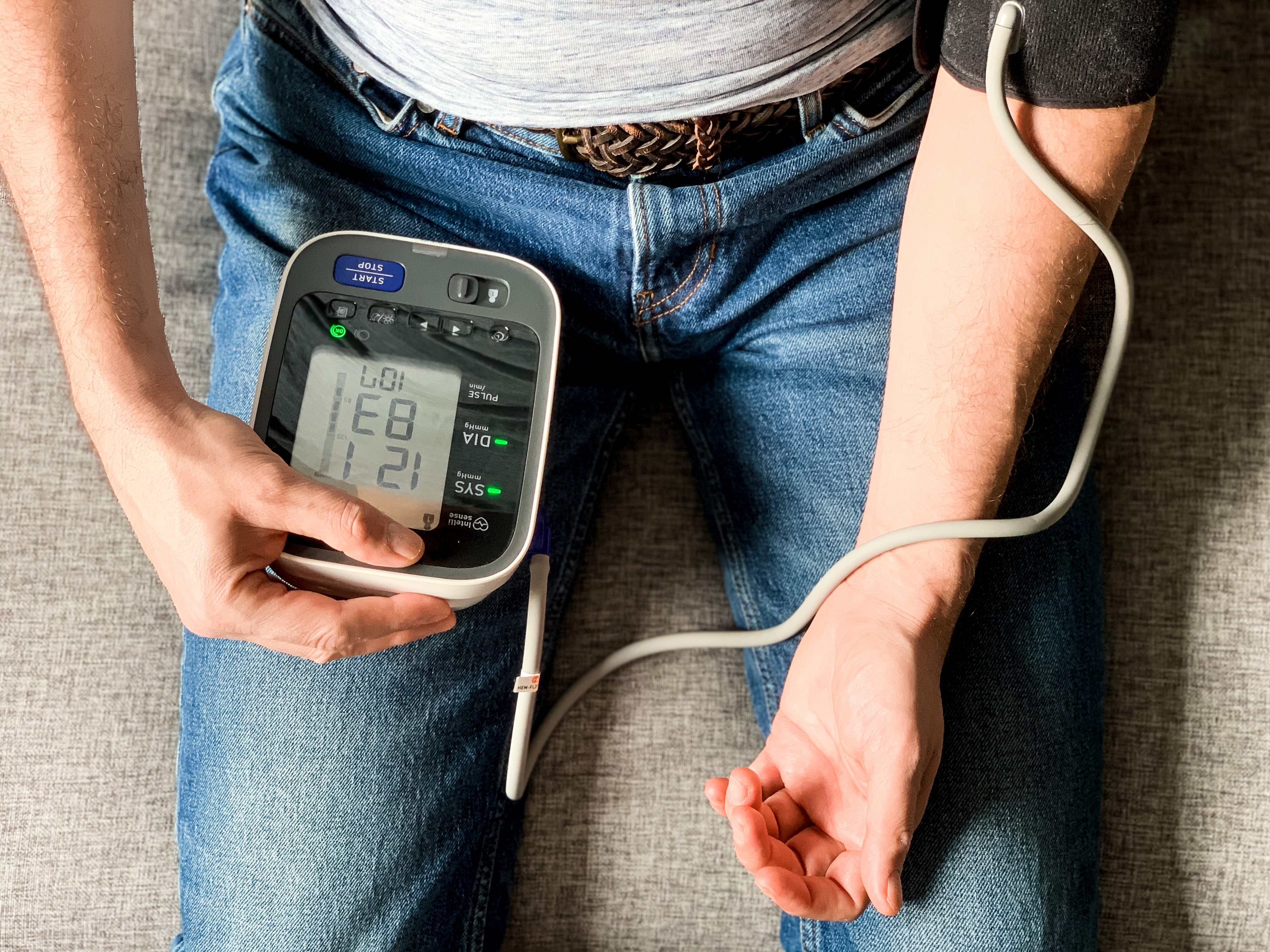
Gut dysbiosis can trigger systemic inflammation and affect the body's ability to regulate blood flow and arterial stiffness. Certain bacterial strains can also influence the production of short-chain fatty acids, which play a role in blood pressure regulation. This connection is especially important for those with a family history of heart disease, as it highlights a metabolic link that goes beyond diet and exercise. Supporting your gut health can help improve nutrient absorption and restore a healthy balance, bringing your blood pressure back into a stable range.
39. Low Libido

An often-overlooked symptom of an imbalanced gut microbiome is a significant drop in libido. The gut plays a crucial role in regulating hormones, including testosterone and estrogen, which are vital for desire in both men and women. Gut dysbiosis can disrupt the production and balance of these hormones, leading to a decreased interest in intimacy. This is a subtle but important signal that the hormonal balance of your body is compromised. Addressing the underlying gut issues often helps restore hormone levels, which can lead to a natural return of your overall vitality.
40. Auditory Changes (Tinnitus or Muffled Hearing)
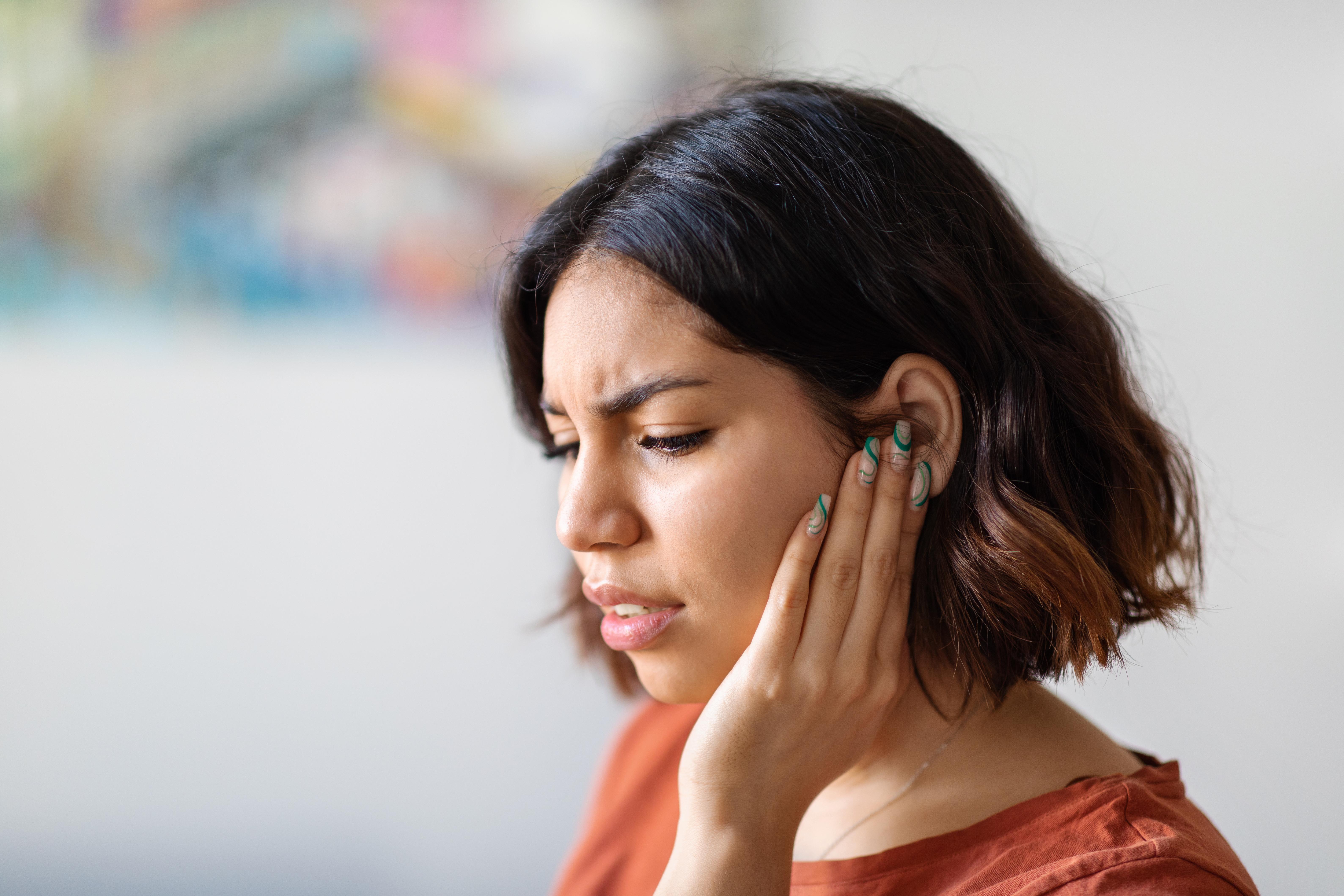
If you're experiencing a persistent ringing in your ears (tinnitus) or a feeling of muffled hearing, your gut microbiome could be the surprising culprit. Research suggests a strong link between gut health and auditory function. An imbalanced microbiome can trigger systemic inflammation, which can affect the intricate structures within the inner ear that are responsible for hearing. While often attributed to loud noises or aging, persistent auditory issues—especially when accompanied by other symptoms—can be a quiet signal that your gut needs attention.
41. Increased Urination and Thirst

A hyperactive gut microbiome can sometimes cause an increase in both thirst and urination. Certain bacteria, particularly in an imbalanced gut, can influence the production of hormones that regulate fluid balance. This can lead to a state where your body is constantly trying to flush out toxins, resulting in more frequent trips to the bathroom. This is a clear signal that your body is in a state of fluid imbalance and needs to be rehydrated.
42. Unexplained Clumsiness or Poor Coordination

An imbalanced gut microbiome can sometimes lead to a surprising and uncomfortable symptom: unexplained clumsiness. While often attributed to lack of sleep or aging, gut dysbiosis can disrupt the gut-brain axis, impacting the nervous system that controls the muscles of the esophagus and throat. This can cause a sensation of a lump in the throat or make swallowing feel strained. Healing starts with nourishing the gut-brain connection. Probiotics, anti-inflammatory foods, and stress-reduction techniques can help calm the nervous system and restore smooth, comfortable swallowing.
43. A Sudden Aversion to Certain Foods

Beyond general food intolerances, an imbalanced gut can manifest as a sudden, strong aversion to specific foods you used to enjoy. Your gut microbes are masters of communication, and they send signals to the brain that can influence your food preferences. When your microbiome is out of balance, the "bad" bacteria may generate byproducts that make certain foods—especially complex carbohydrates, specific proteins, or even healthy fats—smell or taste unappealing to you. This isn't just a matter of disliking a flavor; it's your body's way of signaling that something in your gut is struggling to process that food.
44. Reduced Cold Tolerance

If you feel cold more often than others, especially in your hands and feet, your gut could be the culprit. A healthy microbiome is crucial for efficiently absorbing key minerals like iron, which is vital for red blood cell production and oxygen transport throughout the body. When gut health is compromised, your body may struggle to absorb iron, leading to a state of functional anemia that leaves you feeling cold. A healthy gut also helps regulate metabolism, which generates internal heat. So, that chilly sensation could be a quiet sign that your gut is running on low power.
45. Frequent Heartburn or Indigestion

While many people blame heartburn on a diet high in acidic or spicy foods, a gut imbalance can be a contributing factor. A healthy gut flora helps to regulate the production of stomach acid and the function of the lower esophageal sphincter. When there’s an overgrowth of certain bacteria, it can lead to a condition called small intestinal bacterial overgrowth (SIBO), which can cause bloating and increased pressure in the abdomen. This pressure can force stomach acid up into the esophagus, causing that familiar burning sensation.
46. Unexplained Night Sweats

Night sweats are often associated with hormonal fluctuations, but they can also be a surprising symptom of gut dysbiosis. An imbalanced gut microbiome can lead to chronic, low-grade systemic inflammation. This constant inflammatory state can disrupt your body's natural thermostat, causing it to overcompensate by raising your internal temperature at night. The body then tries to cool itself down through sweating, leading to unexplained night sweats. It’s a subtle but clear sign that your internal systems are out of whack and your gut is struggling to maintain balance.
47. Unexplained Itching or Rashes

Beyond obvious skin conditions like eczema, an imbalanced gut can cause a strange, persistent itching or rash on the skin that has no obvious cause. The gut-skin axis is a two-way street, and gut dysbiosis can trigger a low-grade immune response. When the gut barrier is compromised (a leaky gut), undigested food particles and bacterial byproducts can enter the bloodstream and be seen by the body as invaders. This can trigger a histamine reaction that manifests as a persistent itch or an unexplained rash, often on the arms, legs, or torso.
48. Cold Sores or Canker Sores

If you experience recurrent cold sores (herpes labialis) or canker sores (aphthous ulcers), your gut might be the hidden cause. A significant portion of your immune system resides in your gut, and an imbalanced microbiome can compromise its ability to keep viruses and bacteria in check. Gut dysbiosis can weaken your body's defenses against dormant viruses like herpes simplex, leading to more frequent outbreaks. It can also cause systemic inflammation, which is a common trigger for canker sores. Prioritizing a gut-healing, anti-inflammatory diet can help restore immune function from the inside out and reduce the frequency of these painful sores.
49. Unexplained Muscle Aches or Soreness

Muscle pain that isn't tied to exercise can be a surprising indicator of an unhealthy gut. An imbalanced microbiome can lead to chronic, low-grade inflammation throughout your body. This inflammation can cause widespread muscle aches and stiffness, mimicking the feeling of an intense workout or a flu-like state. Additionally, a "leaky gut" can impair your body's ability to absorb essential minerals like magnesium and potassium, which are crucial for muscle function. Restoring your gut health can reduce this systemic inflammation, allowing your muscles to heal and function without unexplained pain.
50. Bumpy Skin on Your Arms or Thighs (Keratosis Pilaris)

That rough, bumpy skin on the back of your arms or thighs—often called "chicken skin"—is a less-known sign of gut trouble. Keratosis pilaris is caused by a buildup of keratin in hair follicles, and it's frequently linked to essential fatty acid and vitamin A deficiencies. An unhealthy gut microbiome and a compromised gut lining can significantly impair your body's ability to absorb these fat-soluble vitamins and healthy fats from your diet. Focusing on gut-healing, nutrient-dense foods can improve absorption, which can, over time, help smooth and clear up your skin.
51. A Sudden Loss of Appetite

A sudden and persistent loss of appetite is a distinct symptom that shouldn't be overlooked. Your gut microbiome plays a direct role in regulating hormones like ghrelin (the hunger hormone) and leptin (the satiety hormone). When the gut is out of balance, the production of these hormones can be disrupted, leading to a decreased interest in food. This can result in unintended weight loss and a failure to get essential nutrients. Restoring the balance of your gut flora is key to helping your body's natural hunger cues return.
Heal the Gut, Heal the Whole You

Your body isn’t broken—it’s communicating. And now, you know how to listen. With the right foods, daily habits, and a little patience, your gut can reset, repair, and return you to full strength. Healing isn’t about chasing symptoms—it’s about restoring the foundation. So whether you saw yourself in one sign or ten, remember: it’s never too late to support your microbiome. Because when your gut gets better, everything gets better. The reset starts now.